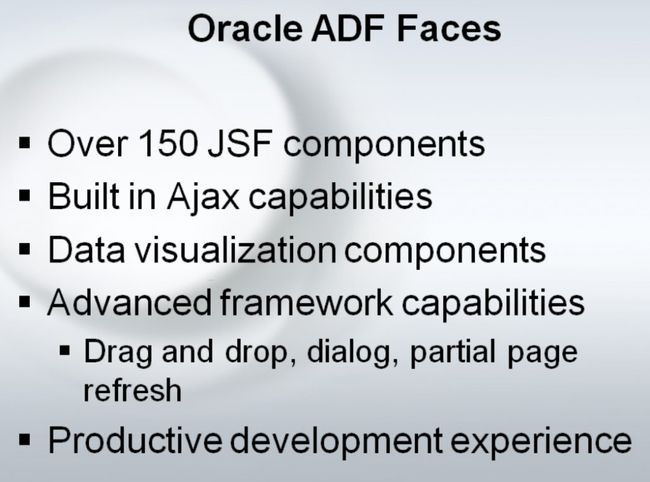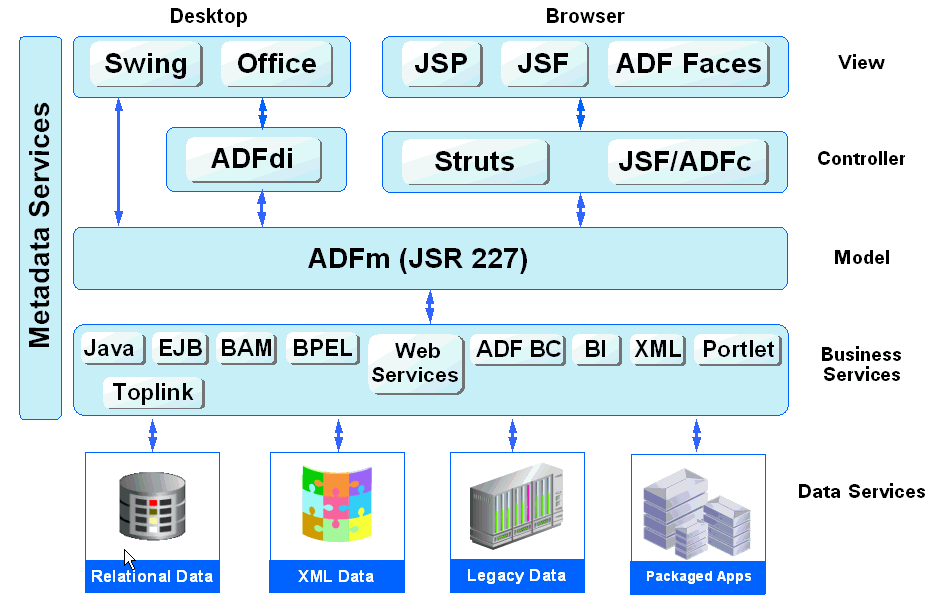Oracle ADF Faces Rich Client Components
Oracle ADF Faces rich client (known also as ADF Faces) is a set of JavaServer Faces (JSF) components that include built-in Asynchronous JavaScript and XML (AJAX) functionality. While AJAX brings rich client-like functionality to browser-based applications, using JSF provides server-side control, which reduces the dependency on an abundance of JavaScript often found in typical AJAX applications.
In addition to providing the JSP tags and UIComponent instances that would be expected of any JSF component set, the ADF Faces rich client framework (RCF) provides a client-side programming model familiar to developers accustomed to the JSF development model. However, the RCF is specifically different where necessary to deal with practical realities of JavaScript development required in standard AJAX development practices. Most of the RCF differs little from any standard JSF application; the server programming model is still JavaServer Faces, and the framework still uses the JavaServer Faces lifecycle, server-side component tree, and the expression language (EL). However, the RCF also provides a client-side programming model and lifecycle that execute independently of the server. Developers can find and manipulate components from JavaScript, for example use get and set properties, receive and queue events, and so forth, entirely from JavaScript. The RCF makes sure changes to component state are automatically synchronized back to the server to ensure consistency of state, and events are delivered, when necessary, to the server for further processing.
Before providing more detailed information regarding ADF Faces, it may help to have a brief history of the ADF Faces library and Rich Internet Applications (RIAs) and AJAX in general.
Link:http://www.oracle.com/technetwork/developer-tools/adf/overview/index-092391.html
ADF Faces Demonstration Application
Link:http://jdevadf.oracle.com/
Oracle ADF MVC Architecture

